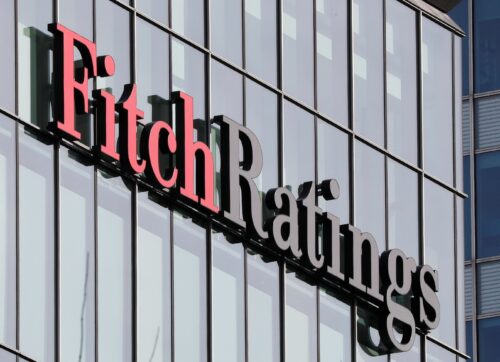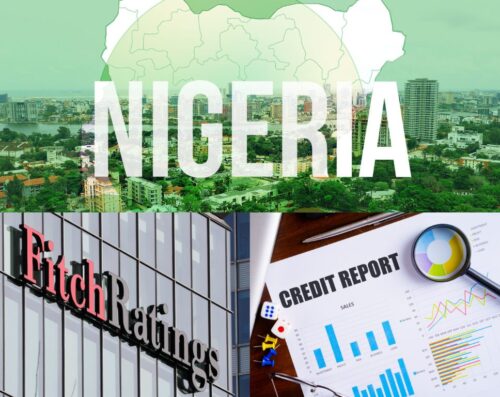
Nigeria has received a credit rating upgrade to ‘B’ with a stable outlook, thanks to the government’s huge macroeconomic reforms, particularly the removal of fuel subsidies and the adoption of a market-driven exchange rate. These changes have helped stabilize the economy, enhance investor confidence, and reduce macroeconomic vulnerabilities.
According to London-based credit rating agency Fitch Ratings, Nigeria’s reform momentum is showing promise, especially in improving FX market operations and stopping inflation, though inflation will likely remain higher than peer economies. “We expect sustained progress in FX reforms and external account stability, bolstered by rising foreign currency supply and energy sector reform,” Fitch noted in its latest review.
5 Key Takeaways from Fitch’s Report
FX Reforms Drive Record Inflows
Under Central Bank Governor Olayemi Cardoso, Nigeria has implemented several foreign exchange market reforms, including the launch of an electronic FX matching platform and tighter monetary policy. These moves have significantly improved transparency and liquidity.
Net official FX inflows surged to a record $27 billion by the fourth quarter of 2024, an 89% increase over the previous year and the total FX inflows for the fiscal year reached $97 billion. Fitch projects continued FX market formalization, though it foresees mild depreciation in the short term.
Inflation To Ease Slightly But Remains High
Following a CPI rebasing, Nigeria’s inflation dropped from 34.8% in December 2024 to 23.2% by February 2025. However, Fitch expects inflation to average 22% in 2025 and 20% in 2026.
To control inflation, the CBN raised the Monetary Policy Rate (MPR) by 875 basis points over the past year to 27.5%. Fitch believes monetary policy will remain tight to avoid reversing recent gains.
Oil Output To Improve, As Refining Capacity Expands
Fitch forecasts Nigeria’s crude oil production will rise slightly to 1.43 million barrels per day (mbpd) in 2025–2026 from 1.34 mbpd in 2024. This remains below the government’s ambitious 2 mbpd target.
Meanwhile, the Dangote Refinery is expected to increase output from 0.55 mbpd to 0.65 mbpd by mid-2025. Operating at 85% of capacity, the refinery currently meets Nigeria’s daily fuel demand of 50 million litres and reduces oil-import costs, which account for nearly 30% of total imports.
However, Fitch noted that the refinery still relies on international crude supplies due to local underproduction.
Budget Deficit to Widen Despite Rising Revenue
Despite a projected increase in government revenue (especially from non-oil tax reforms), Fitch expects Nigeria’s budget deficit to average 4.2% of GDP in 2025–2026. This will be driven by increased wages and social spending, security and election-related expenditures as well as rising debt servicing obligations.
Political risks and implementation challenges may hinder the effectiveness of these reforms.
Public Debt Growth Slows, But Pressures Remain
Fitch estimates that Nigeria’s debt-to-GDP ratio will slightly decline to 51% over 2025–2026 due to strong nominal GDP growth. However, the country’s public debt rose significantly in 2024, reaching ₦144.6 trillion, up from ₦97.3 trillion the previous year.
External debt servicing is expected to rise to $5.2 billion in 2025 (up from $4.7 billion in 2024), driven by a $1.1 billion Eurobond maturity in November 2025.
A recent minor delay in coupon payments on a $4 billion Eurobond further highlights Nigeria’s ongoing public finance management challenges.



